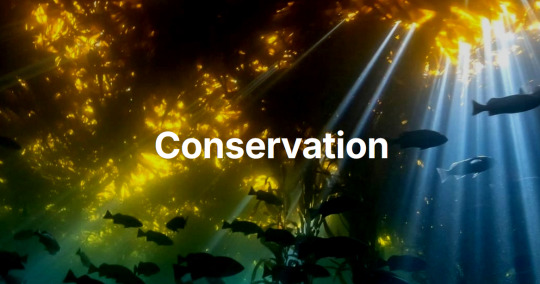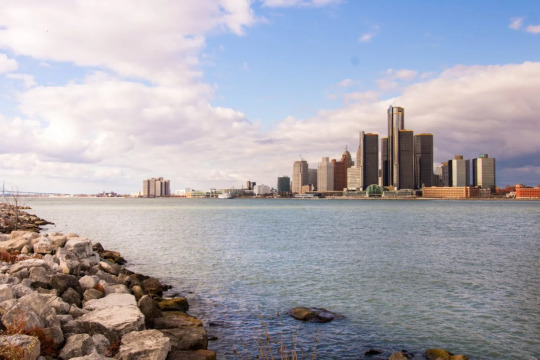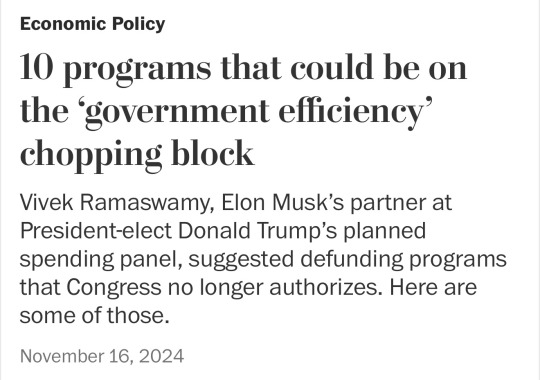#landmark legislation
Explore tagged Tumblr posts
Text
youtube
#youtube#militarytraining#usmilitary#news#landmark legislation#environmental stewardship#Biden#Chuckwalla National Monument#Biden administration#administration legacy#outdoor preservation#sustainable development#climate change#environmental policy#California#America the Beautiful#national monument#ecological preservation#public lands#federal lands#nature conservation#President Biden#national monuments#government policy#environmental conservation#nature preservation#climate action
0 notes
Text










Yellowknife, NWT (No. 10)
The Northwest Territories Legislative Building is the home of the Legislative Assembly of the Northwest Territories, in Yellowknife, Northwest Territories. The territory's legislature has used many permanent and temporary facilities throughout its history. The most recent structure was built in 1993 and commenced usage in 1994, being officially opened that year by Canada's monarch, Queen Elizabeth II. Designed by Ferguson Simek Clark/Pin Matthews (of Yellowknife), in association with Matsuzaki Wright Architects Inc (of Vancouver), the building is two stories tall and contains two round halls: the Great Hall and the Caucus Room. The grounds, overlooking Frame Lake, were laid out by Cornelia Oberlander.
Source: Wikipedia
The Northwest Territories Legislative Assembly, or Legislative Council of the Northwest Territories (with Northwest hyphenated as North-West until 1906), is the legislature and the seat of government of Northwest Territories in Canada. It is a unicameral elected body that creates and amends law in the Northwest Territories. Permanently located in Yellowknife since 1993, the assembly was founded in 1870 and became active in 1872 with the first appointments from the Government of Canada.
Until 2014, the assembly was officially defined under federal law as "Legislative Council". However, under Northwest Territories territorial law, it was defined as "Legislative Assembly". The federal name was changed when the Northwest Territories Act was rewritten in 2014. Under different periods of its history it has alternated names.
Members of the Legislative Assembly are sworn in by the commissioner of the Northwest Territories.
Source: Wikipedia
#Northwest Territories Legislative Building by Matsuzaki Wright#Frame Lake#Yellowknife#NWT#Northwest Territories#nature#travel#original photography#vacation#tourist attraction#landmark#landscape#Canada#summer 2024#cityscape#the North#Canadian history#rock#forest#Canadian Shield bedrock#Frame Lake Trail#architecture#MMIWG monument by Myrna Pokiak
20 notes
·
View notes
Text
It’s crazy how recent environmental regulations are. My dad is older than solid waste regulations in my state 💀
#not to even mention most grandparents are wellllllll older than landmark legislation#like the clean water and clean air acts! that’s nuts!!
0 notes
Text

My local dems sent me a crossword to do. Can you complete it?
#democrat#crossword#alaska#alaska politics#Voting#Election#Democracy#Alaska Politics#Government#Political Figures#Natural Landmarks#Conservation#Candidates#Voting Rights#Representation#Wildlife#Voting Process#Voting Preferences#Alaskan Culture#Local Candidates#Political Positions#Public Funding#Social Security#Abortion Legislation#Alaska State Flower#Alaska’s Governor#Pro-Family Policies#Ranked Choice Voting#Election Day Details#Kodiak Bear
1 note
·
View note
Text
Overview of the Jamaica National Heritage Trust Act of 1985
Imagine stepping into a world where the past and present collide, where ancient windmills stand as silent sentinels to bygone eras, and where vibrant cultural heritage is preserved for future generations. This is the essence of the Jamaica National Heritage Trust Act of 1985. Enacted to safeguard Jamaica’s rich historical and cultural assets, this Act is a beacon of preservation, ensuring that…

View On WordPress
#1985 Act#cultural conservation#Cultural Heritage#heritage preservation#heritage protection#heritage sites#historical landmarks#historical preservation#Jamaica history#Jamaica legislation#Jamaica National Heritage Trust#JNHT#monument maintenance#National Heritage#national monument declaration#national monuments#preservation notice#preservation schemes#protected heritage#Trust funds
0 notes
Text
Here's the top 2 stories from each of Fix The News's six categories:

1. A game-changing HIV drug was the biggest story of 2024
In what Science called the 'breakthrough of the year', researchers revealed in June that a twice-yearly drug called lenacapavir reduced HIV infections in a trial in Africa to zero—an astonishing 100% efficacy, and the closest thing to a vaccine in four decades of research. Things moved quick; by October, the maker of the drug, Gilead, had agreed to produce an affordable version for 120 resource-limited countries, and by December trials were underway for a version that could prevent infection with just a single shot per year. 'I got cold shivers. After all our years of sadness, particularly over vaccines, this truly is surreal.'
2. Another incredible year for disease elimination
Jordan became the first country to eliminate leprosy, Chad eliminated sleeping sickness, Guinea eliminated maternal and neonatal tetanus, Belize, Jamaica, and Saint Vincent & the Grenadines eliminated mother-to-child transmission of HIV and syphilis, India achieved the WHO target for eliminating black fever, India, Viet Nam and Pakistan eliminated trachoma, the world’s leading infectious cause of blindness, and Brazil and Timor Leste eliminated elephantiasis.

15. The EU passed a landmark nature restoration law
When countries pass environmental legislation, it’s big news; when an entire continent mandates the protection of nature, it signals a profound shift. Under the new law, which passed on a knife-edge vote in June 2024, all 27 member states are legally required to restore at least 20% of land and sea by 2030, and degraded ecosystems by 2050. This is one of the world’s most ambitious pieces of legislation and it didn’t come easy; but the payoff will be huge - from tackling biodiversity loss and climate change to enhancing food security.
16. Deforestation in the Amazon halved in two years
Brazil’s space agency, INPE, confirmed a second consecutive year of declining deforestation in the Brazilian Amazon. That means deforestation rates have roughly halved under Lula, and are now approaching all time lows. In Colombia, deforestation dropped by 36%, hitting a 23-year low. Bolivia created four new protected areas, a huge new new state park was created in Pará to protect some of the oldest and tallest tree species in the tropical Americas and a new study revealed that more of the Amazon is protected than we originally thought, with 62.4% of the rainforest now under some form of conservation management.

39. Millions more children got an education
Staggering statistics incoming: between 2000 and 2023, the number of children and adolescents not attending school fell by nearly 40%, and Eastern and Southern Africa, achieved gender parity in primary education, with 25 million more girls are enrolled in primary school today than in the early 2000s. Since 2015, an additional 110 million children have entered school worldwide, and 40 million more young people are completing secondary school.
40. We fed around a quarter of the world's kids at school
Around 480 million students are now getting fed at school, up from 319 million before the pandemic, and 104 countries have joined a global coalition to promote school meals, School feeding policies are now in place in 48 countries in Africa, and this year Nigeria announced plans to expand school meals to 20 million children by 2025, Kenya committed to expanding its program from two million to ten million children by the end of the decade, and Indonesia pledged to provide lunches to all 78 million of its students, in what will be the world's largest free school meals program.

50. Solar installations shattered all records
Global solar installations look set to reach an unprecedented 660GW in 2024, up 50% from 2023's previous record. The pace of deployment has become almost unfathomable - in 2010, it took a month to install a gigawatt, by 2016, a week, and in 2024, just 12 hours. Solar has become not just the cheapest form of new electricity in history, but the fastest-growing energy technology ever deployed, and the International Energy Agency said that the pace of deployment is now ahead of the trajectory required for net zero by 2050.
51. Battery storage transformed the economics of renewables
Global battery storage capacity surged 76% in 2024, making investments in solar and wind energy much more attractive, and vice-versa. As with solar, the pace of change stunned even the most cynical observers. Price wars between the big Chinese manufacturers pushed battery costs to record lows, and global battery manufacturing capacity increased by 42%, setting the stage for future growth in both grid storage and electric vehicles - crucial for the clean flexibility required by a renewables-dominated electricity system. The world's first large-scale grid battery installation only went online seven years ago; by next year, global battery storage capacity will exceed that of pumped hydro.

65. Democracy proved remarkably resilient in a record year of elections
More than two billion people went to the polls this year, and democracy fared far better than most people expected, with solid voter turnout, limited election manipulation, and evidence of incumbent governments being tamed. It wasn't all good news, but Indonesia saw the world's biggest one day election, Indian voters rejected authoritarianism, South Korea's democratic institutions did the same, Bangladesh promised free and fair elections following a 'people's victory', Senegal, Sri Lanka and Botswana saw peaceful transfers of power to new leaders after decades of single party rule, and Syria saw the end of one of the world's most horrific authoritarian regimes.
66. Global leaders committed to ending violence against children
In early November, while the eyes of the world were on the US election, an event took place that may prove to be a far more consequential for humanity. Five countries pledged to end corporal punishment in all settings, two more pledged to end it in schools, and another 12, including Bangladesh and Nigeria, accepted recommendations earlier in the year to end corporal punishment of children in all settings. In total, in 2024 more than 100 countries made some kind of commitment to ending violence against children. Together, these countries are home to hundreds of millions of children, with the WHO calling the move a 'fundamental shift.'

73. Space exploration hit new milestones
NASA’s Europa Clipper began a 2.9 billion kilometre voyage to Jupiter to investigate a moon that may have conditions for life; astronomers identified an ice world with a possible atmosphere in the habitable zone; and the James Webb Telescope found the farthest known galaxy. Closer to Earth, China landed on the far side of the moon, the Polaris Dawn crew made a historic trip to orbit, and Starship moved closer to operational use – and maybe one day, to travel to Mars.
74. Next-generation materials advanced
A mind-boggling year for material science. Artificial intelligence helped identify a solid-state electrolyte that could slash lithium use in batteries by 70%, and an Apple supplier announced a battery material that can deliver around 100 times better energy density. Researchers created an insulating synthetic sapphire material 1.25 nanometers thick, plus the world’s thinnest lens, just three atoms across. The world’s first functioning graphene-based semiconductor was unveiled (the long-awaited ‘wonder material’ may finally be coming of age!) and a team at Berkeley invented a fluffy yellow powder that could be a game changer for removing carbon from the atmosphere.
-via Fix The News, December 19, 2024
#renumbered this to reflect the article numbering#and highlight just how many stories of hope there are#and how many successes each labeled story contains#2024#good news#hope#hope posting#hopeposting#hopepunk#conservation#sustainability#public health#energy#quality of life#human rights#science and technology
3K notes
·
View notes
Text
Best News of Last Week - July 3, 2023
🐕 - This dog is 'disc'-overing hidden treasures! Get ready for the 'paws'-itively successful fundraiser, Daisy's Discs!
1. Most unionized US rail workers now have new sick leave

More than 60% of U.S. unionized railroad workers at major railroads are now covered by new sick leave agreements, a trade group said Monday.
Last year railroads came under fire for not agreeing to paid sick leave during labor negotiations.
2. Missing teen found after being lost in the wilderness for 50 hours

Esther Wang, 16, had been hiking with three other people through the Maple Ridge park on Tuesday.
The group made it to Steve’s lookout around 2:45 p.m. that day.However, when they headed back down to the campsite, after about 15 minutes of hiking, the group leader realized Wang was missing. They returned to the lookout to look for Wang but couldn’t find her. The leader headed to the trail entrance to notify a park ranger and police.
“Esther Wang has been located. She’s healthy, she is happy and she’s with family.”
3. A dog has retrieved 155 discs from woods. They’ll be on sale soon, with proceeds going to the park in West Virginia where they were found

Meet Daisy, the yellow Labrador retriever with a unique talent for finding lost Frisbee golf discs at Grand Vue Park in West Virginia. Four years ago, while on a walk with her owner Kelly Mason, Daisy discovered a disc in the woods and proudly brought it back. Since then, Daisy's obsession with finding stray discs has grown, and she has collected an impressive cache of 155 discs.
Mason and park officials have now come up with a plan to return the discs to their owners if they are labeled, and any unclaimed discs will be sold as a fundraiser to support the park's disc golf courses. Daisy's Discs is expected to be a success, with many excited about the possibility of recovering their lost discs thanks to Daisy's remarkable skills.
4. Australian earless dragon last seen in 1969 rediscovered in secret location

A tiny earless dragon feared to be extinct in the wild has been sighted for the first time in more than 50 years – at a location that is being kept secret to help preservation efforts.
The Victorian grassland earless dragon, Tympanocryptis pinguicolla, has now been rediscovered in the state, according to a joint statement issued by the Victorian and federal Labor governments on Sunday.
5. Detroit is going to power 100% of its municipal buildings with solar

All of Detroit’s municipal buildings are going to be powered by neighborhood solar as part of the city’s efforts to combat climate change – check out the city’s cool grassroots plan. Meet Detroit Rock Solar City.
The city has determined that it’s going to need around 250 acres of solar panels in order to achieve 100% solar power for its municipal buildings.
6. Canada Officially Bans Cosmetic Testing on Animals

The fight for cruelty-free beauty in Canada has seen a significant breakthrough as the Canadian government legislates a full ban on cosmetic animal testing and trade, marking a victory for Animal rights advocates and eco-conscious consumers.
This landmark decision is part of the Budget Implementation Act (Bill C-47), not only prohibiting cosmetic animal testing but also putting an end to the sale of cosmetics that use new animal testing data for safety substantiation.
7. Belize certified malaria-free by WHO

The World Health Organization (WHO) has certified Belize as malaria-free, following the country’s over 70 years of continued efforts to stamp out the disease.
“WHO congratulates the people and government of Belize and their network of global and local partners for this achievement”, said Dr Tedros Adhanom Ghebreyesus, WHO Director-General. “Belize is another example of how, with the right tools and the right approach, we can dream of a malaria-free future.”
----
That's it for this week :)
This newsletter will always be free. If you liked this post you can support me with a small kofi donation:
Support this newsletter ❤️
Also don’t forget to reblog.
1K notes
·
View notes
Text
Law Holds Fossil Fuel Companies Responsible for Impact of Pollution on New York Communities
Bill Signed to Broaden State Ban on Hydraulic Fracturing
Actions are Latest Move to Strengthen State’s Climate Actions and Environmental Protection Laws to Prevent Harmful Impacts to New Yorkers
Governor Kathy Hochul today signed landmark legislation to bolster New York’s efforts to protect and restore the environment by requiring large fossil fuel companies to pay for critical projects that protect New Yorkers. Legislation S.2129-B/A.3351-B creates a ‘Climate Superfund’ to support New York-based projects that bolster New York’s resiliency to dangerous climate impacts like flooding and extreme heat.
“With nearly every record rainfall, heatwave, and coastal storm, New Yorkers are increasingly burdened with billions of dollars in health, safety, and environmental consequences due to polluters that have historically harmed our environment,” Governor Hochul said. “Establishing the Climate Superfund is the latest example of my administration taking action to hold polluters responsible for the damage done to our environment and requiring major investments in infrastructure and other projects critical to protecting our communities and economy.”
This landmark legislation shifts the cost of climate adaptation from everyday New Yorkers to the fossil fuel companies most responsible for the pollution. By creating a Climate Change Adaptation Cost Recovery Program, this law ensures that these companies contribute to the funding of critical infrastructure investments, such as coastal protection and flood mitigation systems, to enhance the climate resilience of communities across the state.
90 notes
·
View notes
Text


Veterans’ health care
A 1996 law set eligibility requirements for military veterans to receive hospital, medical and nursing home care and authorized spending for those services and patient enrollment. That law has not been renewed, but Congress regularly allocates additional Department of Veterans Affairs funding and allows benefits to increase automatically based on inflation. VA provides medical care to more than 9.1 million enrolled veterans, according to the agency.
Drug development and opioid addiction treatment
Most of this spending relates to the bipartisan 21st Century Cures Act of 2016. That law provided money to the National Institutes of Health and Food and Drug Administration to modernize pharmaceutical research and medical trials. It funded research for cancer cures and state-level grants for opioid addiction and other substance abuse treatment.
State Department
In 2003, Congress passed the Foreign Relations Authorization Act, which set policy priorities and created spending authority for the State Department. That law has not been renewed, but Congress every year since has passed annual funding bills for the department, which Trump has announced he’ll nominate Sen. Marco Rubio (R-Florida) to run.
Housing assistance
President Bill Clinton in 1998 signed the Quality Housing and Work Responsibility Act, which overhauled federal housing assistance policies, including voucher programs and other antipoverty assistance. The Department of Housing and Urban Development and other agencies continue using this law to implement federal housing programs.
Justice Department
In 1994, Congress passed the landmark Violence Against Women Act and has renewed it multiple times since. In 2006, lawmakers packaged a VAWA renewal with authorizing legislation for the Justice Department. As with the State Department, Congress has not approved new authorizing legislation for the Justice Department since, but it has funded the agency — and even authorized hundreds of millions of dollars more for a new FBI headquarters — every year.
Education spending
The 2015 Every Student Succeeds Act delegated power to state and local education officials to set primary and secondary education achievement standards. It gives billions of dollars in federal grant money to state and local education officials to fund schools and school districts. Those standards are still used by the Education Department, even though the legislation has not been reauthorized. Trump has suggested he’d like to eliminate the entire department.
NASA
Stripping funding for NASA, which was last reauthorized in 2017, could spell doom for Musk’s commercial spaceflight firm, SpaceX. The company has contracts worth more than $4 billion — including for return trips to the moon and retiring the International Space Station — linked to programs approved in the 2017 law.
Health-care and student loan programs
What’s known as the Affordable Care Act, or Obamacare, was actually passed in two separate bills in 2010. The Health Care and Education Reconciliation Act represents the second bill, which included some tax revisions and technical changes to the ACA. The law has not been reauthorized since, but the Department of Health and Human Services reported in March that more than 45 million people have health insurance coverage backed by the Affordable Care Act.
The law that made those final tweaks to the ACA also overhauled the Education Department’s student loan program. Where some schools relied on private lenders to issue federally backed loans, with this law, the government itself became the lender. That change has since enabled President Joe Biden to offer student loan debt relief, though many of his most ambitious policies have been blocked by the courts. Student loans are generally funded through mandatory spending — similar to social safety net programs such as Medicare and Social Security — and not subject to annual spending laws.
International security programs
The 1985 International Security and Development Cooperation Act bundled together authorizations for a number of international security programs, including funding and regulations for arms sales to allies, economic aid for developing countries, airport security, anti-narcotics-trafficking policies, the Peace Corps and more. This Reagan-era law continues to be foundational to congressional funding and federal policy.
Head Start
Head Start provides preschool education for children from low-income families. In the 2023 fiscal year, more than 800,000 children enrolled in Head Start programs, according to the National Head Start Association. The program also helped place more than 530,000 parents in jobs, school or job-training programs. It was last authorized in 2007.
(continue reading)
#politics#republicans#project 2025#elon musk#donld trump#vivek ramaswamy#deregulation#kleptocracy#oligarchy#department of government efficiency#republicans are evil#tax the rich#the cruelty is the point
54 notes
·
View notes
Text
Somewhere, in another timeline...Bernie Sanders is finishing out his second term as president.
(a coping-method scenario)
Back in 2016, the Democratic Party saw that denying his appeal and pushing forward with Hillary Clinton would be catastrophic—she didn’t have the appeal, and pushing forward another historic first right after Obama might galvanize the right wing further into feeling that America was no longer “for them.” The potential risk was too great in radicalizing that bloc, and as strange as it seemed, Bernie was the safer choice. He faces Donald Trump in the general election—and many pundits decry the sad state of today’s politics, where the only choices are a “socialist kook” or a reality television star. Trump’s odd mannerisms and morally questionable behavior, however, manage to turn off enough people that they’d rather not vote at all. After careful consideration, the Democrats do decide to take a chance on a female VP running mate (after all, the Republicans had set precedent with Sarah Palin in 2008)-- Senator Amy Klobuchar gets tapped to balance the ticket. With the slightly lower voter turnout on the right, and the left energized with a surging youth vote, Bernie Sanders becomes the 45th president of the United States, and America gets its first female VP with Amy Klobuchar.
Trump, who had honestly never intended on winning anyway, uses the loss as planned to claim fraud and launch his own cable streaming channel- TNN, Trump News Nation- intended as a rival to Fox News. He repeatedly tries to sue over the “stolen” election—this had all been intended to make sorely needed funds for his hemorrhaging business ventures after all. TNN draws massive ratings on launch, but as the months go by, views trickle off as watchers grow exhausted of hearing about politics through the context of Trump’s own grievances. Most filter back to Fox News, where at least the diet of mostly fabricated nonsense and conspiracy theories are varied. TNN’s most viewed show is a variation on the Apprentice, where contestants compete to gain Donald’s political endorsement and “mentorship.” None of the winning show contestants ever end up winning their political races. By 2018, viewership is minimal and stagnant, any ad revenue has dried up, and TNN shutters its doors. Trump moves on to his next failed business grift, fading from public relevance only to be occasionally remembered as “that time a reality tv personality ran for president…can you believe that happened?” American politics forgets him as another failed presidential candidate, and the GOP moves on, reexamining their strategy after losing to a Democrat once again.
Bernie’s presidency isn’t all sunshine and roses. The young progressives who voted him in find themselves frustrated with the lack of sudden progressive changes he’s actually able to make due to the constraints of the presidency—one still needs to work with Congress, after all. And Washington doesn’t exactly warm up to the formerly Independent senator with a leftist bent quickly. But landmark bipartisan legislation on climate change that includes concessions to congressional Republicans on taxes proves to be very successful. Despite controversy on some of the legislation's corporate tax restructuring (part of Republican demands), the tax cuts and benefits for the vast majority of Americans have appeal to even those who questioned the value of climate change measures.
By the 2020 election, Bernie’s favorability is substantial, in addition to a boost from quick action in tackling a small, ultimately containable new virus. Regardless, Bernie is able to leverage providing funds for vaccine research to help contain and prevent future outbreaks to drug companies, in exchange for negotiating price caps on certain drugs. The combined result is more than enough to hand him a win in 2020 against Ted Cruz—who’s off-putting “serial killer vibes” and right-leaning deep Texas persona prove to be buzzkills for the GOP’s attempt at leaning right as a rebrand.
The fields for both parties are packed in the 2024 primaries—but ultimately Senator Cory Booker clenches the Democratic nomination, and the Republicans take a chance on Representative Liz Cheney, hoping that the combination of the Cheney name and a female candidate a la the Sarah Palin gambit will be what’s needed to turn their losing streak around. It’s a tight race, in the end—pundits pontificate on how “polarized” the nation has become, as rhetoric flies about the Cheney legacy and calling Liz everything from a warmonger to “the worst candidate America has ever seen who will do serious damage to the heart of the nation.” Voters on the left debate the potential of the first female president vs rehashed talking points from the Bush era and the legacy of wars in the Middle East.
The pick of Booker by the Democratic establishment, who are fairly eager to regain control over the nomination process and candidate selection after having to cede control and allow Bernie's candidacy last time, ultimately reflects that the party and elites have not learned the lesson 2016 should have impressed upon them. Instead of allowing the voters interests to shape the primaries, they continue to wield control and painstakingly fixate over the specific demographics of candidates, trying to find the right "mix" that they think moderate voters will "tolerate." Booker, despite his accomplishments, is ultimately the victim of this, as he doesn't have the revolutionary appeal of Obama, despite frequently being painted as "Obama 2.0." The Democrats fail once again to learn that what voters truly care about is not a candidate fitting certain demographic boxes, but the strength of their ideas and narrative.
Ultimately, the voters go with Liz Cheney, who historically becomes the first female president of the United States. Republicans are jubilant at taking back the White House (and that they were able to claim a historic first and deny Democrats the honor-- not that they'd say it outright, since they'd sought to strike a contrast between running Cheney just as a candidate and not as a woman). Despite the outcome of the election, it's unclear whether the Democratic establishment finally learns that lesson-- or retreats into itself pointing fingers and throwing blame at "not picking a female and losing credibility as the party of progress." Rumors had been flying that Hillary was going to try again—ultimately turning out to be false (but perhaps not entirely untrue-- she had been approached and was considering it). Some Democrats point out that "progress" should be expressed through innovative and progressive policies that will APPEAL to different demographics, instead of ignoring stagnant policies to focus on demographics alone...time will tell if their voices are heard.
As for Joe Biden, one of the longstanding members of the political sphere, after serving as Obama's VP, he retires to his home in Delaware, only occasionally being seen at major political events here and there. The largest amount of attention he gets is a moment in 2021 that spawns many, many memes-- a viral video is captured of Biden enjoying an ice cream when it falls to the floor, at which point the former VP stares at the melting cone and declares "I'm Dark Brandon." No one has any clue what he's talking about, and it's written off as just another "Uncle Joe" gaffe. Other than that, not much is heard from Biden. People do say, however, that occasionally the man stares off into the distance with a far-off look of horror, as if he is somewhere else entirely...and witnessing something awful.
As Cheney is sworn in as president, the progressive corners of the internet mourn, citing the actions of Dick Cheney and decrying that this new administration might be "the death of democracy." A viral Tweet (yes, TWEET) with millions of likes reads "bruh this has to be the darkest timeline, there's no way this could be any worse 😫"
(If only they really knew...)
#us politics#politics tw#did i write out an entire alt-history fanfic essentially to cope#yeah maybe#but imagining it felt nice; didn't it?
136 notes
·
View notes
Text
This means LGBTQ+ couples will be able to register their marriage in January next year, making Thailand the third place in Asia, after Taiwan and Nepal, to allow same-sex marriage.
The bill, which grants full legal, financial and medical rights for marriage partners of any gender, sailed through both the House of Representatives and the Senate in April and June respectively.
“Congratulations to everyone’s love,” Prime Minister Paetongtarn Shinawatra wrote on X, adding the hashtag #LoveWins.
The legislation amended the country’s Civil and Commercial Code to replace gender-specific words such as “men and women” with gender-neutral words such as “individual.”
well done, Thailand!
76 notes
·
View notes
Photo

It’s been 60 years since this historic moment. 🙌🏾
On July 2, 1964, President Lyndon B. Johnson signed the Civil Rights Act into law alongside Rev. Dr. Martin Luther King, Jr. and other leaders. The landmark legislation was intended to end discrimination based on race, color, religion, or national origin in the United States — and gave federal law enforcement agencies the power to prevent racial discrimination in voting, public facilities, and employment.
In the 60 years since, we’ve seen progress through activism, increased political representation, and other important legislation — but the fight for true equality continues.
In 2024, Black and Brown communities are experiencing familiar and targeted attacks on their voting rights. At least 308 bills that restrict voter access have been introduced across the country this year alone.
Join us in the fight for our vote by checking your voter registration today at weall.vote/register.
#civil rights act#civil rights#history#civil rights movement#on this day#OTD#u.s. history#mlk jr#discrimination#voting
147 notes
·
View notes
Text






























Governor of New York David B. Hill signed legislation creating the Niagara Reservation, New York’s first state park on April 30, 1885, ensuring that Niagara Falls will not be devoted solely to industrial and commercial use.
#Governor of New York#legislation#Niagara Reservation#Niagara Falls#30 April 1885#anniversary#US history#Ontario#Canada#travel#summer 2018#Horseshoe Falls#American Falls#Bridal Veil Falls#water#landmark#tourist attraction#landscape#cityscape#original photography#flower#flora#nature#Goat Island Bridge#Niagara River#waterfall#vacation#2009#2012#USA
3 notes
·
View notes
Text
The lack of empathy towards the people of LA has been disturbing. People are losing their entire lives, their family’s history, decades of work/memories/money to these fires. Yes, there will be people who are wealthy or famous impacted, but there is also the enormous homeless population, local wildlife and nature, and historical landmarks being devastated by this. Just gone, in a split second.
This is climate crisis. This is EXTINCTION brought on by capitalism, legislation, and the wealthiest people over the past century, and it’s going to continue and get worse. There are people to be angry at, and it isn’t some actor or someone who owns three houses. Direct your resentment and anger towards the actual culprits.
44 notes
·
View notes
Text
Excerpt from this story from Grist:
As a prominent Democrat, Gore’s impassioned advocacy has been blamed for making climate change seem like a liberal thing to care about. To Gore, that’s an example of attacking the messenger without looking at the deeper reasons why climate change is politically contentious in the first place. “Even when Pope Francis, for goodness’ sake, speaks out on it, they attack him and say that he’s meddling in partisanship.” If there’s anyone to blame for polarization, he said, it’s the fossil fuel industry, which has tried to take control of the conversation about climate change.
“This is the most powerful and wealthiest business lobby in the history of the world, and they spare no effort and no expense to try to block any progress,” Gore said. “Whoever sticks his or her head up above the parapet draws fire from fossil fuel polluters, and they use their legacy networks of economic and political power to try to block any solutions of any sort that might reduce the consumption of fossil fuels.”
In his decades of talking to the public about climate change, he says he’s learned a few things. You have to keep in mind a “time budget” that people will give you to speak with them, as well as a “complexity budget” so that you avoid dumping facts and numbers onto people. Finally, he says, you need to allot a “hope budget” so they don’t get too overwhelmed and depressed.
Even while progress has been slower than he’d hoped, Gore sees signs that things are moving in the right direction. Last year, 86 percent of new electricity generation installed worldwide came from renewables, for example. Not to mention that Congress, where climate legislation had long gone to die, finally managed to pass a landmark climate law in 2022, the Inflation Reduction Act, which aims to drastically trim U.S. emissions through green incentives and rebates.
“It’s the kind of challenge that is so compelling — once you pick it up, you can’t put it back down again — because it really requires any person of conscience, I think, to keep working on it until we get the kind of progress that’s needed.”
49 notes
·
View notes
Text
Donald Trump and his fellow Republicans made the high cost of living a major focus of their campaigns in 2024. And for all of their vitriolic attacks on Democrats over issues like crime and immigration, it may have been their promise to reduce everyday prices that allowed them to win control of the White House and Congress.
But governing is harder than campaigning. The president-elect and other Republicans are likely to see this firsthand when their commitment to lower prices runs smack into their opposition to government spending on health care — and, no less important, to their antipathy toward so-called Obamacare. It’s going to happen sometime in the next few months, or maybe even the next few weeks. A finding that the Congressional Budget Office released Thursday shows why.
The finding was about the cost of health insurance for people who buy private coverage through the Affordable Care Act, the landmark legislation that Democrats passed and then-President Barack Obama signed in 2010. The short version of CBO’s conclusion is that insurance for millions of Americans will get more expensive if the Republicans don’t act.
The long version goes like this: These millions are the people who buy insurance directly through the Affordable Care Act marketplaces, HealthCare.gov and its state-run analogues like Covered California, because they make too much money to qualify for government programs like Medicaid and can’t get coverage through their jobs.
When they buy through the marketplaces, they can qualify for tax credits that effectively discount premiums by hundreds and frequently thousands of dollars annually. But in the Affordable Care Act’s early years, those tax credits were smaller than the law’s architects had hoped, because there weren’t enough votes in Congress to fund more generous assistance. It’s a big reason that so many people continued to struggle with high costs, or simply didn’t get insurance at all, in the program’s initial years. All of that changed in 2021, when President Joe Biden and the Democrats temporarily boosted the subsidies with extra money. The initial impetus was the COVID-19 pandemic; doing whatever it took to help people pay medical bills seemed like an especially good idea in the middle of a public health crisis. But there was always a second motive: trying to make insurance available through the Affordable Care Act more affordable.
The effects of the bigger tax credits have been clear. With cheaper insurance at the marketplaces, enrollment has surged to record levels. But the extra subsidies are set to vanish after 2025. And while Democrats have called for extending them, it would be up to Trump and Republicans in Congress to do so.
That’s not the sort of thing they’re inclined to do ― although, with Thursday’s CBO finding, they have a new reason to think about it.
41 notes
·
View notes